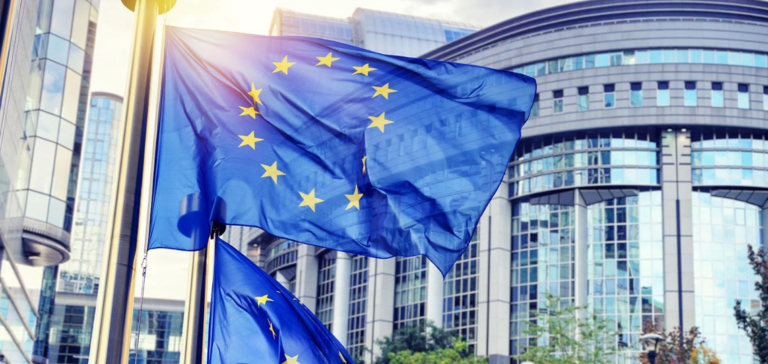The European Commission is making proposals to combat high energy prices and ensure security of supply. After attempts to stabilize energy prices, the European Commission is proposing grouped purchases of gas.
Group purchases
The European Commission proposes grouped gas purchases. Currently, the stock level is at 92%. The total interruption of Russian imports projects a deficit of a quarter of European consumption. Brussels wishes to aggregate the demand of the Union and thus negotiate better prices on the world market.
The European Commission would contract with a service provider to organize the aggregation. Companies will have to group together to reach 15% of their stored volumes. For Frans Timmermans, vice-president of the commission, this measure is part of a spirit of cooperation:
“By taking action now and developing the tools to buy gas together instead of outbidding each other, we can once again go into the next heating season with enough gas in reserve.”
In addition, the companies could form a European gas purchasing consortium, by derogating from the competition rules in force. However, if European countries have more bargaining power, suppliers will have to honor long-term contracts. In addition, the European Commission wishes to strengthen its financial power within the framework of the REPowerEU plan.
Price regulation
TTF market prices were soaring even before the Russian-Ukrainian conflict. With the recovery of post-covid demand and an unfavorable weather situation, prices are increasing significantly. The European Commission proposes a price correction mechanism by imposing a temporary ceiling.
This level would make it impossible to trade above the FTT and would apply until a new index separate from the FTT is defined. Brussels regrets that the FTT exchange no longer reflects the current situation. This is a systemic challenge in an extremely volatile market.
Electricity pricing should no longer be dependent on the FTT. Thus, the commission is developing a new complementary price benchmark with ACER. While waiting for this reference system to be developed, the Union relies on its price correction mechanism.
Strengthening solidarity
The European Commission is closely monitoring demand reduction measures. It seems ready to review its objectives once again and to trigger the European alert. Therefore, in order to continue its efforts, it proposes, among other things, to extend the solidarity protection to cover the essential gas volumes in the production of electricity.
Any member state facing an emergency situation will receive gas from the others in exchange for fair compensation. This will also affect non-connected Member States with LNG facilities. The Commission is also proposing a recommendation on infrastructure protection following the Nord Stream pipeline explosions.
Finally, Brussels has announced that it will propose a reform of the European Union’s electricity market. A reform to “decouple” electricity and gas prices that many countries are calling for. These proposals come just days before the meeting of heads of state and government on October 20 and 21 in Brussels.





















